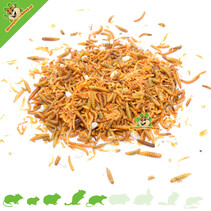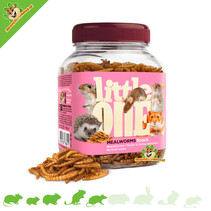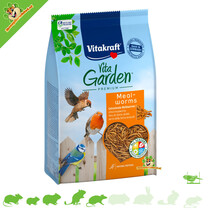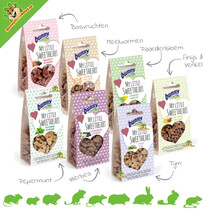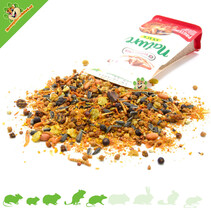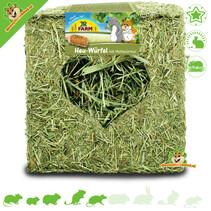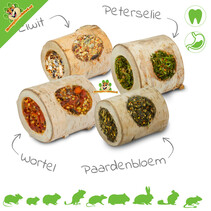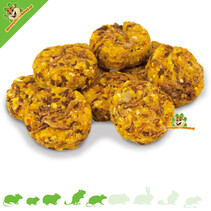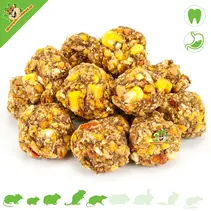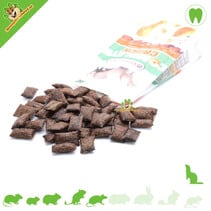Animal Proteins for Hamsters & Dwarf Hamsters
- Ordered before 5 p.m., shipped the same day!
- Al 14 jaar een begrip!
- Delivery from our own stock
- Ordered before 5 p.m., shipped the same day!
- Al 14 jaar een begrip!
- Delivery from our own stock
You can easily and quickly order animal proteins for hamsters and dwarf hamsters at DRD Rodent Shop ®
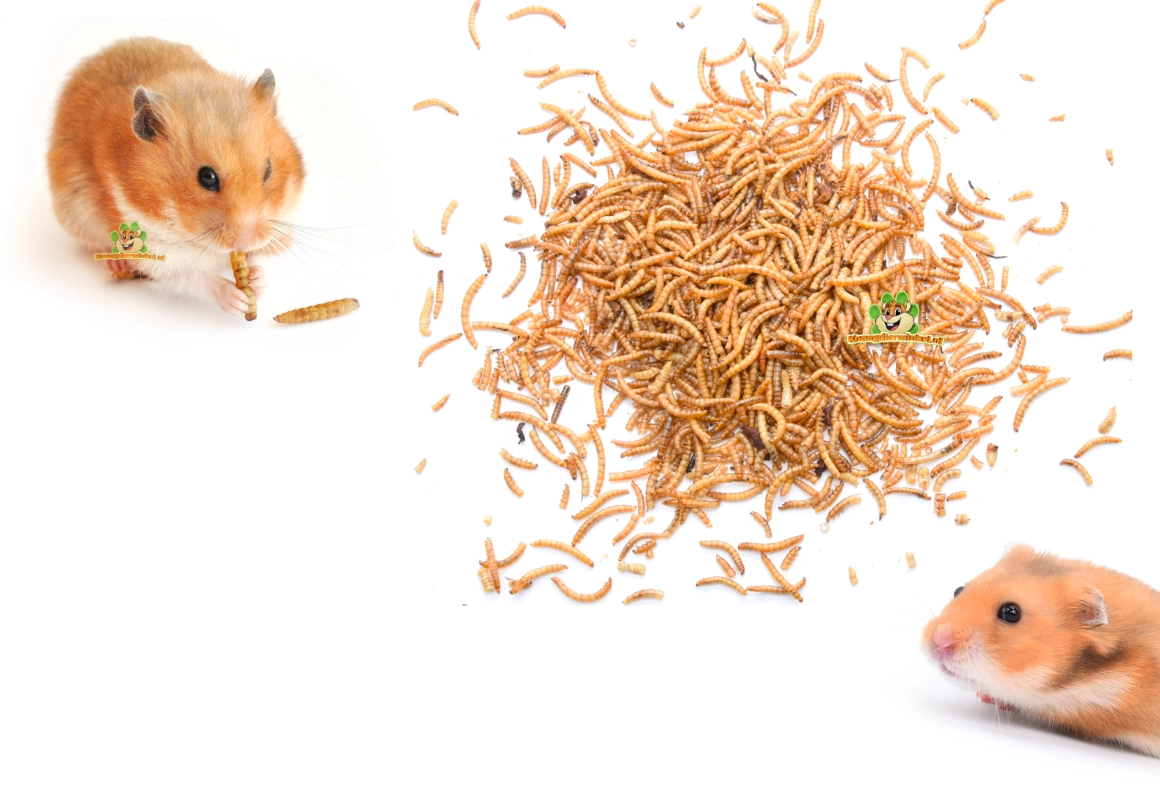
Animal proteins, such as: Mealworms , Grasshoppers , Caterpillars and flake reefs are very important for Hamsters and Dwarf Hamsters. In the wild, animals also eat animal proteins in the form of beetles, snails, worms, larvae and other small insects.
Why are animal proteins important for hamsters?
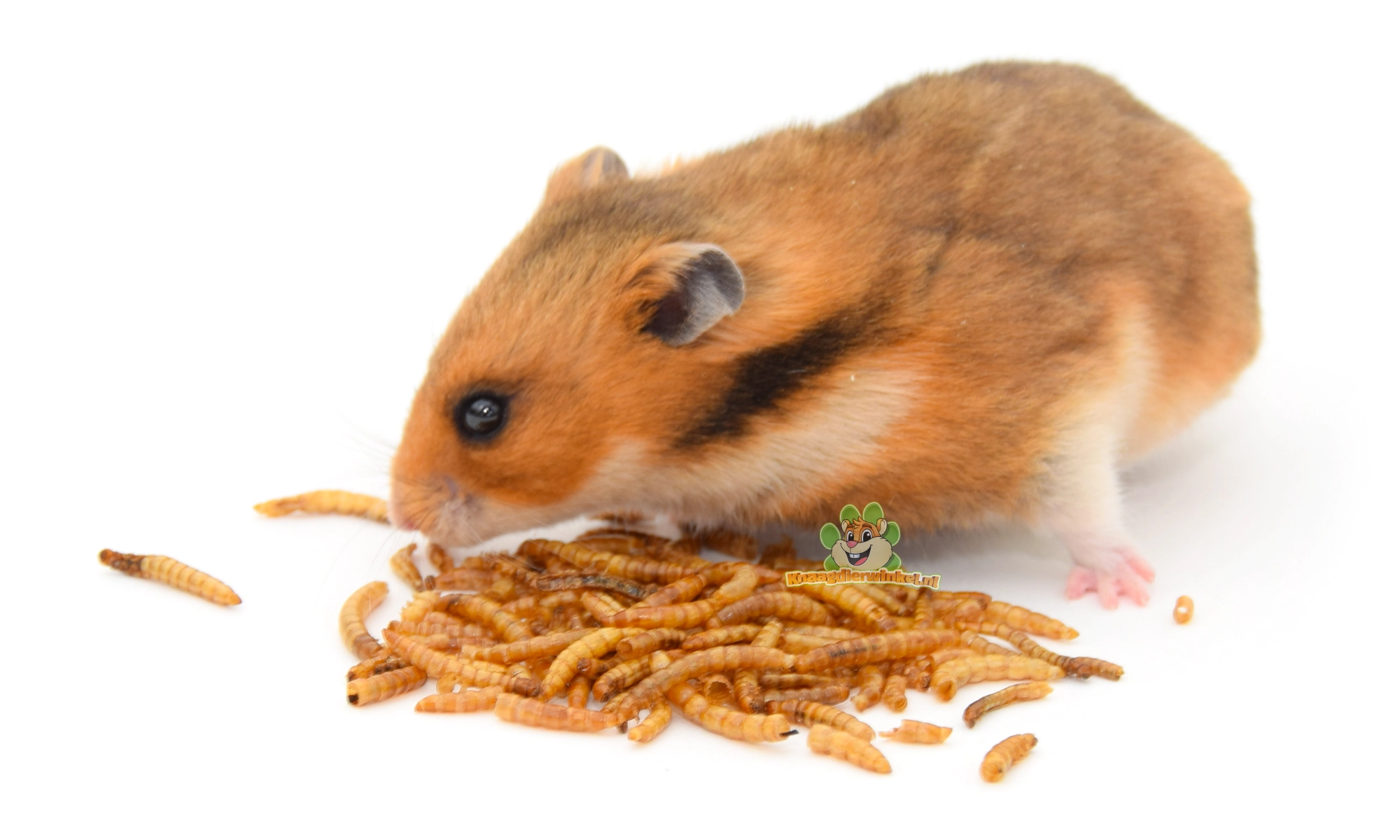 Animal proteins are an important part of a hamster's diet, as they aid in growth , tissue repair , and maintaining a healthy immune system . In their natural habitat, hamsters would eat insects and small animals, making them naturally rich in protein.
Animal proteins are an important part of a hamster's diet, as they aid in growth , tissue repair , and maintaining a healthy immune system . In their natural habitat, hamsters would eat insects and small animals, making them naturally rich in protein.
Adding animal proteins to your hamster's diet provides a balanced diet and helps maintain their health and vitality.
What are the benefits of feeding mealworms to hamsters?
Mealworms are an excellent source of animal protein for hamsters. They offer many benefits:
- Rich in proteins and healthy fats
- Help build muscle and support overall health
- A natural source of fibre , which is good for your hamster's digestion
It is important to feed mealworms in moderation as they are a fairly high-fat snack.
Can I use Black Soldier Fly (BSF) as a protein source for my hamster?
Yes! Black Soldier Fly (BSF) is a great source of animal protein for hamsters. The larvae of the BSF are:
- Rich in proteins and healthy fats
- High protein snack that increases your hamster's energy
- Sustainable and environmentally friendly compared to other protein sources
BSF larvae are a natural choice for enriching your hamster's diet, but feed them sparingly to maintain a good balance.
What are amphipods and are they good for my hamster?
Amphipods (also called daphnia ) are a healthy source of animal protein for your hamster. They are:
- Easily digestible for hamsters
- Rich in proteins , minerals and vitamins
- Good source of Omega-3 fatty acids , which are good for your hamster's skin and coat
Amphipods are an ideal addition to your hamster's diet, especially for hamsters that are active and need extra energy.
Are grasshoppers good for hamsters?
Yes, grasshoppers are an excellent source of animal protein for hamsters. They provide:
- High protein content that supports muscle development and energy levels
- Essential fatty acids that contribute to a healthy skin and coat
- Low in fat compared to other insects
Grasshoppers can be given as a snack or as a supplement to your hamster's diet, but make sure they are well dried and free from harmful substances.
Can I feed crickets to my hamster?
Crickets are an excellent source of animal protein for hamsters, and are a popular alternative to other insects. They provide:
- High protein content , which aids in muscle building and overall health
- Low fat , meaning they provide a balanced diet without excessive fat storage
- Essential nutrients such as calcium, phosphorus and vitamins
Crickets should be offered well dried or fresh and can be given occasionally as a tasty snack .
Do Hamsters and Dwarf Hamsters Need Animal Protein?
Both hamsters (Syrian hamster/Golden hamster) and dwarf hamsters (Roborovski dwarf hamster, Chinese dwarf hamster, Campbell's dwarf hamster, Russian dwarf hamster) need animal proteins in their diet. This is already processed in most foods. Only young, pregnant and lactating animals need extra proteins. Animals that need to gain strength also benefit from animal proteins.
How can you give animal proteins to Hamsters and Dwarf Hamsters?
It is possible to add animal proteins to the daily food, to enrich it. It is also possible to scatter the animal proteins loosely through the enclosure so that the animals have to look for them (forage), which gives a lot of challenge and lets the animals show their natural behavior. The most fun is to feed the animal proteins such as a dried mealworm or grasshopper from the hand as a contact moment. Because the animals love it so much, they will experience it as very positive and will therefore come to you more quickly and become tame.
How much animal protein should I give my hamster?
It is important to feed your hamster animal proteins in moderation , as they are part of a varied diet. About 5-10% of their diet can consist of animal proteins. This means that you can occasionally give your hamster insects or other protein-rich snacks, but the majority of their diet should consist of vegetables, fruits, and grains .
Tip: Vary the protein sources (mealworms, grasshoppers, BSF, etc.) for a balanced diet.
What should I avoid when feeding animal proteins to my hamster?
There are some restrictions when feeding animal proteins:
- Unwanted insects such as those found in nature (e.g. flies or spiders) can be dangerous due to pesticides or other substances.
- Too much protein : Excessive protein intake can lead to health problems such as kidney disease or obesity.
- Incorrect preparation : Make sure the insects are properly dried or cooked before offering them to prevent diseases.
Does every hamster food contain animal proteins?
No, not every food contains animal proteins and that is not so bad. Older animals in particular have less need for animal proteins. For this group of animals, a food without animal proteins is certainly a good option. A food without animal proteins does of course contain proteins, but these are of vegetable origin. In addition, you can occasionally feed the older hamster loose animal proteins as a contact moment, for example.



